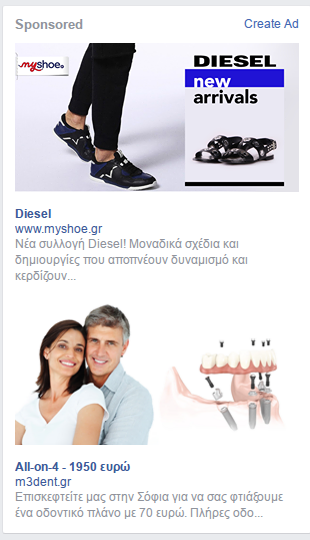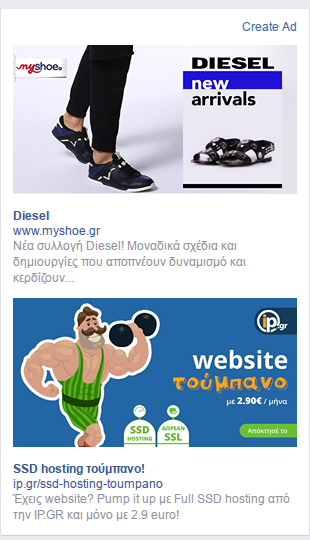Will Opera be nixing certain adblockers like Google Chrome will be doing?
-
A Former User last edited by A Former User
Good news guys. Opera has made their stance clear in a statement to ZDNET. I have posted a link to the article below to read it in full.
"ZDNet also received a similar statement from Opera, another browser vendor which uses the Chromium codebase.
"We might also consider keeping the referenced APIs working, even if Chrome doesn't, but again, this is not really an issue for the more than 300 million people who have chosen Opera," an Opera spokesperson told us.
This is because, just like Brave, Opera also ships with a built-in ad blocker.
"All the Opera browsers, both on mobile and PC, come with an ad blocker that users can choose to enable," the spokesperson said. "This means that Opera users aren't really exposed to these changes - unlike users of most other browsers."
Further, this ad blocker is very configurable because it also allows users to import custom domain lists, so users can block any advertising domain they want, giving them full control of what types of ads they can see, or not."
https://www.zdnet.com/article/opera-brave-vivaldi-to-ignore-chromes-anti-ad-blocker-changes-despite-shared-codebase/ -
A Former User last edited by
Google have really shot themselves in the foot with this. Other browsers, especially Opera will benefit from users switching browsers from Chrome.
-
A Former User last edited by
@daveski17
I wont be surprised if some add driven sites will suddenly begun to say only supported browser is Chrome (because they don't block adds)
-
blackbird71 last edited by
A fair number of sites already block ad-blocking browsers/extensions. Whether an ad-favoring site sniffs a user agent string for browser type or uses site code to sniff for ad blocking, the result turns out to be essentially the same: up pops a usage-blocking message if ads can be user-blocked. The struggle is really over how websites can recoup their costs of providing their online services/media, and until that is finally settled somehow, this stands as only one more round of tactics.
-
A Former User last edited by
@leocg Depends on if they like ads or not I suppose. On more than a few forums I've spoken to quite a few Chrome users who will jump ship when the API change comes into effect.
It's the main reason I downloaded Opera from the Ubuntu repo. I already have Firefox but I want a good back-up browser.
-
A Former User last edited by
I really hate it when browser devs use the "we have our own adblock, built in and this will stay" as an advantage.
Who considers opera's built in adblock to be a good one? Because I don't.Proof


Both those screenshots are from facebook's ads and were taken the first days I started using chromium opera, back in early 2017, with no extra extensions yet.
The first one shows the original ad frame and no adblock at all, and the second one shows the same frame with opera's built in adblock. As it seems, all opera's adblock did was to filter the "Sponsored" word on the top and nothing more.
And that was the moment I disabled it and installed ublock origin to opera too. -
A Former User last edited by
uBO is the best adblocker. I was just wondering if push came to shove that I could surf with only Opera's inbuilt blocker.
I use a combination of ABP and Ghostery Lite on Safari.
I use uBO on Firefox.
-
A Former User last edited by
Pretty sure Opera will see this as their chance to push their inbuilt ad blocker and won't put much energy into restoring the old api.
-
blackbird71 last edited by
At this point in time, it's way too early to know how this will unfold for various browsers, Opera included. At least in part, that's because the final version of the new chromium API and any 'permanent' changes/deprecation of the old API have not been decided upon. Only then, and based upon that impact to browser coding, will it be possible to determine how the various browsers will be impacted. Those impacts will determine the economics or possibility of various browsers preserving existing ad-blocking capabilities or extension compatibility. Right now, it appears that everyone's at the mercy of how the chromium changes are actually implemented, and that's where the battle is being fought between app and chromium developers.
-
A Former User last edited by
@leocg said in Will Opera be nixing certain adblockers like Google Chrome will be doing?:
@skyrim2011 I still think that everything will depend on how difficult and how costly will be to avoid the changes in Chromium.
Well, considering that the enterprise version of Chrome isn't affected by this, how exactly are you making this corollary?
I'm no software engineer but I wouldn't have thought it would be prohibitively expensive in keeping the webRequest API and not replacing it with the declarativeNetRequest API.
I guess that's what's happening with the enterprise version of Chrome.
But as I stated, I'm no software engineer.
-
A Former User last edited by
@leocg said in Will Opera be nixing certain adblockers like Google Chrome will be doing?:
@daveski17 There is already a public version of Chrome/Chromium with the change?
All I know is that Google have backtracked and now claim the API change won't affect the adblocking functionality in enterprise versions.
https://9to5google.com/2019/05/29/chrome-ad-blocking-enterprise-manifest-v3/
-
A Former User last edited by
@daveski17
This is what happens if there is only one API from a company with market dominance.
-
A Former User last edited by
Good news everyone!
Additionally, we are currently planning to change the rule limit from maximum of 30k rules per extension to a global maximum of 150k rules.
https://blog.chromium.org/2019/06/web-request-and-declarative-net-request.html